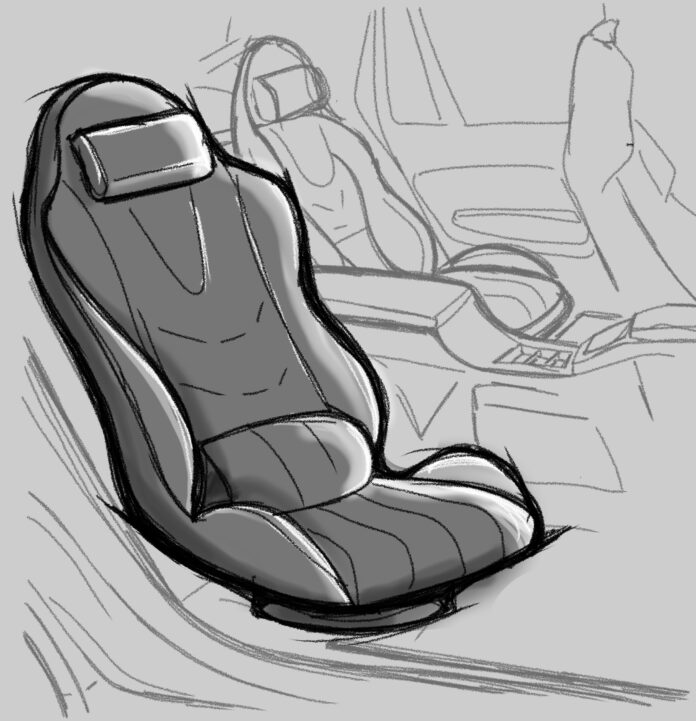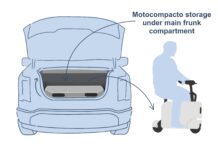Throughout this topical section, the two big directions that I wanted to dedicate a majority of my focus to was the ergonomic design of seating and the integration of technology into a vehicle system. From this secondary research, understanding the curvature of the spine, proper positioning, and situations and sensations that could cause potential pain for riders was perhaps the biggest facet of the problem I wanted to design my conjecture around.
What is depicted here is a manually reclining seat, similar in nature to that of a gaming chair. Gaming chairs in particular have a reclining feature and are for the most part easily adjustable for a variety of different heights; considering that the lack of positioning that most back seat environments have to offer, I wanted to add that feature into a seat. In this design, there is more of a focus on distributing weight across the spine properly and an emphasis on proper cushioning for areas that need it most, such as lower lumbar support pillows for example. Additionally, a few models of cars in the past from many different auto companies have featured a swivel seat – a swivel seat could give passengers more space to relax, socialize with other passengers, and make the action of entering and exiting a better experience.
Additionally, though it would make more sense from a manufacturing sense to have this seat be manually adjustable, incorporating already existing Honda technology such as seat position memory, as well as potential future ones, such as smartphone integration, would be interesting to continue to explore.




